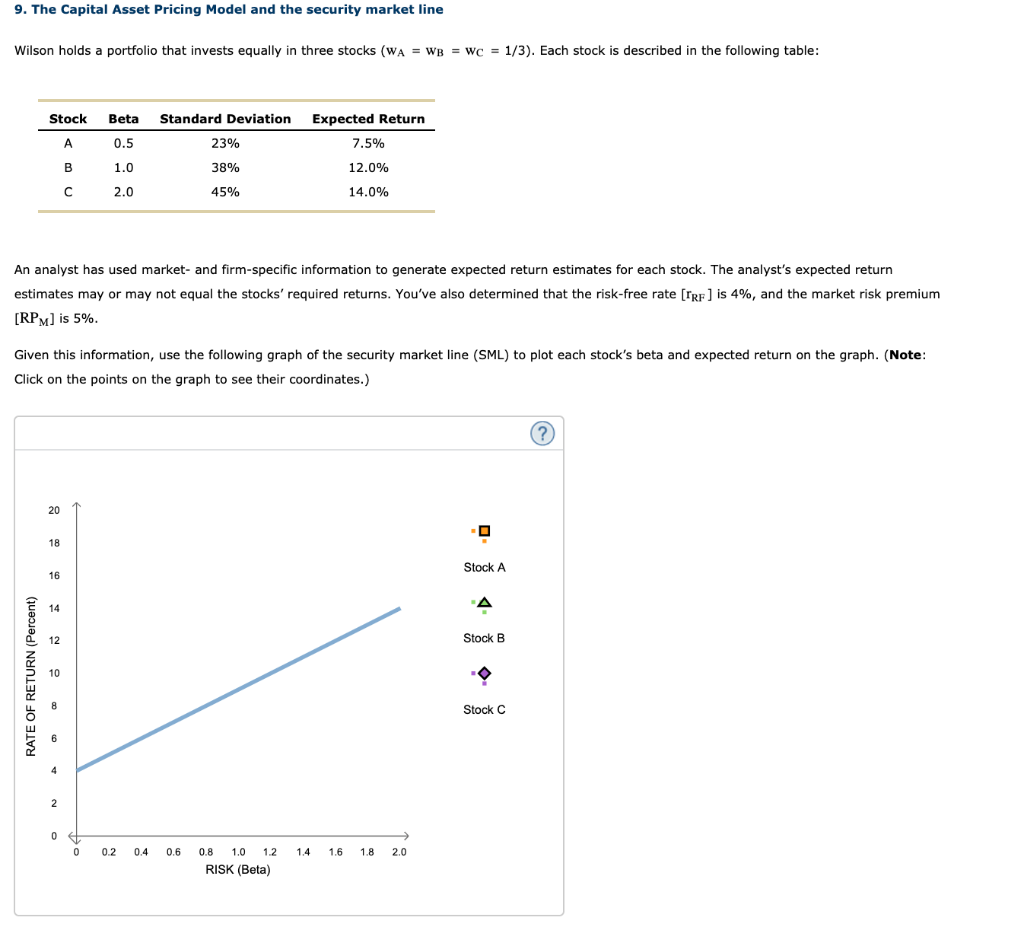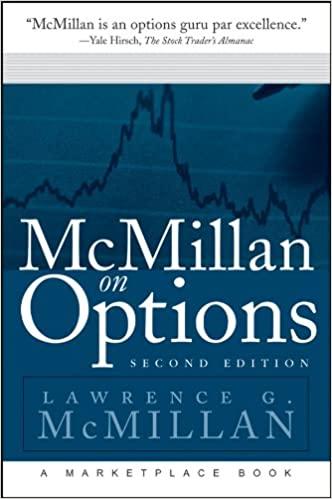

9. The Capital Asset Pricing Model and the security market line Wilson holds a portfolio that invests equally in three stocks (WA = WB = Wc = 1/3). Each stock is described in the following table: Stock Beta Standard Deviation Expected Return 0.5 23% 7.5% A B 1.0 38% 12.0% 2.0 45% 14.0% An analyst has used market- and firm-specific information to generate expected return estimates for each stock. The analyst's expected return estimates may or may not equal the stocks' required returns. You've also determined that the risk-free rate (TRF) is 4%, and the market risk premium [RPM) is 5% Given this information, use the following graph of the security market line (SML) to plot each stock's beta and expected return on the graph. (Note: Click on the points on the graph to see their coordinates.) ? 20 18 Stock A 16 14 A 12 Stock B RATE OF RETURN (Percent) 10 8 Stock C 6 4 2 0 0 0.2 0.4 0.6 1.4 1.6 1.8 2.0 0.8 1.0 12 RISK (Beta) A stock is in equilibrium if its expected return its required return. In general, assume that markets and stocks are in equilibrium (or fairly valued), but sometimes investors have different opinions about a stock's prospects and may think that a stock is out of equilibrium (either undervalued or overvalued). Based on the analyst's expected return estimates, Stock A is Stock B is Stock C is in equilibrium and fairly valued. , and 9. The Capital Asset Pricing Model and the security market line Wilson holds a portfolio that invests equally in three stocks (WA = WB = Wc = 1/3). Each stock is described in the following table: Stock Beta Standard Deviation Expected Return 0.5 23% 7.5% A B 1.0 38% 12.0% 2.0 45% 14.0% An analyst has used market- and firm-specific information to generate expected return estimates for each stock. The analyst's expected return estimates may or may not equal the stocks' required returns. You've also determined that the risk-free rate (TRF) is 4%, and the market risk premium [RPM) is 5% Given this information, use the following graph of the security market line (SML) to plot each stock's beta and expected return on the graph. (Note: Click on the points on the graph to see their coordinates.) ? 20 18 Stock A 16 14 A 12 Stock B RATE OF RETURN (Percent) 10 8 Stock C 6 4 2 0 0 0.2 0.4 0.6 1.4 1.6 1.8 2.0 0.8 1.0 12 RISK (Beta) A stock is in equilibrium if its expected return its required return. In general, assume that markets and stocks are in equilibrium (or fairly valued), but sometimes investors have different opinions about a stock's prospects and may think that a stock is out of equilibrium (either undervalued or overvalued). Based on the analyst's expected return estimates, Stock A is Stock B is Stock C is in equilibrium and fairly valued. , and








